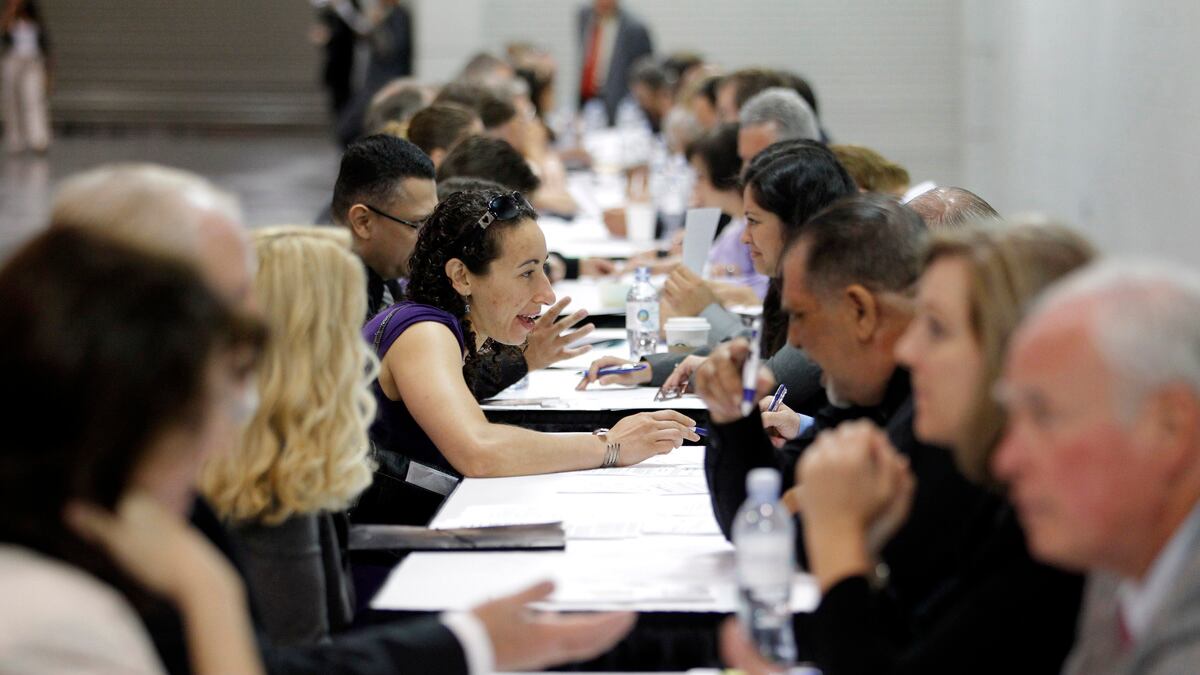It’s tough to get a job if you have a criminal record. But according to a new survey of recruiters, it’s even tougher if you’ve been unemployed for two years.
In this jobless recovery, that’s not so rare. The Labor Department estimates that almost 2 million people have been unemployed for two years. Millions more have spent at least two years working part-time for economic reasons, or given up the job search entirely.
It’s bad enough that the economy added only 96,000 jobs in August, far too few to keep up with population growth. But the labor market is lurching in other, even worse ways. Millions more Americans are giving up the job search altogether, and dropping out of the labor force. Moreover, the median duration of unemployment is now at its lengthiest since the recession: four and a half months. While corporations sit on trillions in cash, they decline to fill job openings, which are paradoxically at their highest level since 2009.
Bullhorn, a large recruiting-software company, ran the anonymous survey of 1,500 recruiters and hiring managers. When it comes to long-term unemployment, job hopping, and waning skills, the news isn’t good.
According to 36 percent of recruiters, it becomes “difficult” for an applicant to find a job if he or she is unemployed for as little as six months. Twenty-one percent say that spells of joblessness shorter than six months could kill your hiring prospects. In short, “unemployment can lead to being unemployable.”
In a slack labor market, many workers survive by hopping from job to job. But even that makes an applicant look bad. The survey reports that a 55-year-old with steady employment will find it easier to find a new job than a 30-year-old who has left a company before one year of work. And that’s despite the fact that 70 percent of recruiters say that candidates in their 30s are the easiest group to place.

The biggest obstacles for an unemployed candidate? Thirty-nine percent say hopping jobs. Thirty-one percent say being unemployed for more than a year. And 28 percent say gaps in employment history. Given the shrinking labor force and the rise in marginal job attachment, those three phenomena are growing more and more common.
There’s other troubling news. Thirty-one percent of recruiters say that if your skills are “no longer in demand,” you may be screwed. Another 26 percent say the worst hiring factor is being “out of touch with modern technology” or the “modern workplace.” That should give more evidence to the controversial “skills gap,” which some puzzled economists have blamed for the slow pace of post-recession job growth. The idea is that businesses, after hemorrhaging workers amid the crisis, have learned to get by with newer technology and fewer warm bodies. Unskilled workers can no longer compete.
Finally, although most recruiters don’t think that being laid off will hurt you the most, 78 percent said that getting fired would be the “most severely damaging to a candidate’s future employment prospects.”
It’s no surprise that unemployment breeds unemployment. But when all the labor market’s specific woes line up so well with all that recruiters most fear, you begin to see why the recession’s shadow seems so long.






